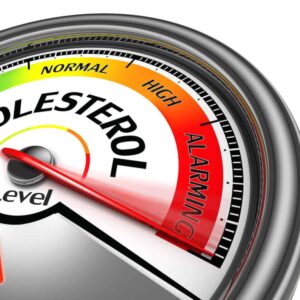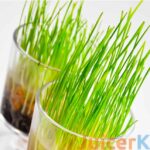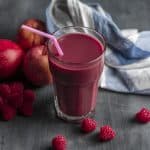Since you’re reading this, you are probably seeking an effective natural way to reduce cholesterol levels. Well, search no more, as you will soon see how juicing can lower your cholesterol levels.
How Juicing Can Help Lower Your Cholesterol
How often do you juice? If the answer is never, or not often enough, you should really reconsider it.
Why? Because numerous studies have indicated the potential health benefits of juicing various fruits and vegetables, some of which could likely improve your health.

How Can Juicing Reduce Cholesterol Levels?
To understand how juicing can help to reduce cholesterol levels, first, you must have a basic understanding of what goes into the juice.
Selecting fruits or vegetables is the most important part of reaping the health benefits. Some may be more efficient at reducing your cancer risk or boosting your immune system.
In contrast, others are better suited for lowering cholesterol. More on that in a bit.
Juices Are Typically High In Fiber.
You may be confused when you hear that juices contain high amounts of fiber, and you’re not totally wrong. There are a few basic ways juices help to reduce cholesterol levels.
However, what ensures you get lots of fiber out of the nutritious fruits or veggies is the type of juicer you have. Centrifugal juicers supply the least fiber since most of the pulp is discarded or separated.
On the other hand, masticating juicers crush the fibrous pulp up, resulting in reduced wastage and a thicker juice. The preservation of the fiber is essential since it is this exact fiber that reduces cholesterol levels.
Bile is important in emulsifying fat but is usually “recycled” to be used again.
However, fiber can bind to these bile salts and promote their elimination in the stool. Certain fiber types can bind to bile produced by the liver.
The result? No recycling of this necessary digestive juice, but rather production from scratch, using cholesterol stores as the raw material.
What you are left with is a depleted cholesterol supply. Of course, the frequency of juicing and paying attention to your levels is also important.
Certain Juices Can Restrict Absorption of Fat Into Circulation.
Another significant way to reduce cholesterol levels is to limit the amount made available for absorption! Many fruits and vegetables contain plant sterols, which can be considered plant-based cholesterol.
These sterols actively compete with cholesterol for absorption, making much of it excreted unabsorbed.
Reducing Oxidation – one of the major issues associated with high cholesterol levels is when it oxidizes.
Oxidized cholesterol attaches itself conveniently to blood cell walls. Before you know it, a large occlusion has developed that all but restricts blood flow. This is the genesis of heart disease, stroke, and heart attacks.
Juicing fruits and vegetables can significantly slow down or restrict oxidation of cholesterol, preventing deposits from forming on your blood vessels.
What Are The Best Juices To Reduce Cholesterol Levels?
There are many different types of juices that are known to be effective in reducing cholesterol levels, including pomegranate juice, apple juice, orange juice, and cranberry juice. Pomegranate juice is rich in antioxidants, which helps to reduce inflammation in the body and reduce cholesterol levels.
It is also thought to reduce cardiovascular disease risk and help keep blood pressure levels in the normal range. Apple juice is high in pectin, a soluble fiber that helps to reduce cholesterol levels, regulate blood sugar levels, and improve digestion.
Cruciferous Vegetables – these include Broccoli, Kale, Cabbage, and Cauliflower. These are well known for their ability to promote the excretion of bile acids, the mechanism described above.
Foods Rich In Plant Sterols
Plant sterols are compounds in various plants linked to health benefits such as reducing cholesterol. Many foods contain plant sterols, and adding these foods to your diet is an easy way to increase your intake of these beneficial compounds. Here is a list of some of the foods that are rich in plant sterols:
- Avocado: One whole avocado contains about 14mg of plant sterols.
- Nuts, such as almonds, walnuts, and pistachios
- Oats
- Legumes, such as chickpeas and lentils
- Vegetable oils, such as olive and canola oil
- Oats are a great source of plant sterols, with one cup containing around 23mg.
- Seeds such as sesame, sunflower, and pumpkin seeds
Antioxidants – you’re in luck! By far, the majority of fruits and vegetables are loaded with antioxidants. Therefore, this is your opportunity to mix it up.
Looking for sweeter options? Add some pineapple or berries. Pineapple is a perfect choice as it is naturally sweet and has a unique flavor that will stand out in the juice. On the other hand, Berries can provide a more subtle sweetness and pair nicely with different fruit flavors.
Conclusion
Juicing can effectively reduce cholesterol levels, as it allows you to increase your consumption of fiber-rich fruits and vegetables. Fiber helps to reduce cholesterol levels by binding with it and carrying it out of the body.
Additionally, including certain plant-based ingredients in your juice can help to reduce cholesterol levels, such as garlic, ginger, and oats. Garlic has been shown to reduce total cholesterol and LDL cholesterol levels.
At the same time, ginger is believed to help reduce the risk of heart disease by lowering LDL cholesterol levels. Oats are a source of beta-glucan, a type of soluble fiber that can help to reduce cholesterol levels
So juicing to reduce high cholesterol allows you to receive loads of cholesterol-reducing benefits and reach your daily intake of fruits or vegetables. Drinking them is far less painful than eating them if you find yourself struggling to consume nature’s best on a daily basis.








